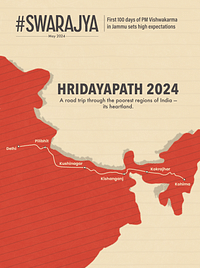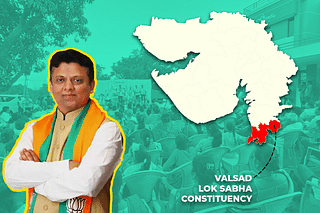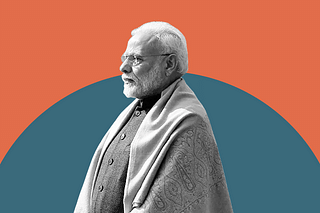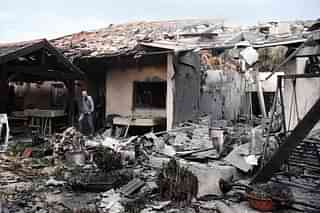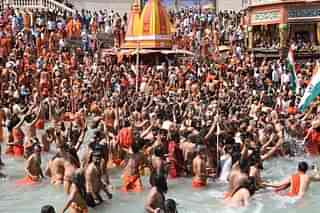Politics
Andhra: TDP-Jana Sena Alliance’s Proposed Backward Castes Atrocities Act Would Be A Reckless Gamble
S Rajesh
Mar 07, 2024, 01:01 PM | Updated 01:01 PM IST
Save & read from anywhere!
Bookmark stories for easy access on any device or the Swarajya app.

As part of their 'BC declaration' (poll promises for backward castes) announced on 5 March, the Telugu Desam Party (TDP)-Jana Sena alliance in Andhra Pradesh stated that they would bring a law on the lines of the Scheduled caste/scheduled tribe Atrocities Act for backward classes.
The declaration also contains provisions like 34 per cent reservation in local bodies, increase in pension and issuance of permanent caste certificates.
While exact details of the proposed law are not yet known, it is problematic because of the possibility of misuse of stringent provisions provided under an Atrocity Act, such as the non-applicability of anticipatory bail.
Take the case of the Scheduled Caste and Scheduled Tribe (Prevention of Atrocities) Act for instance. The misuse of the act to settle scores is well documented.
In Rajasthan alone, data put out by the state police in 2020 showed that 40 per cent of the cases filed under the Act were fake.
Its political misuse is not unheard of.
In January, K Annamalai,the president of the Tamil Nadu unit of the Bharatiya Janata Party (BJP) alleged that R Jagannathan, the Vice Chancellor of Periyar University in Tamil Nadu was booked under the Act as he had refused to appoint a nominee of former Higher Education minister K Ponmudy as the registrar.
Jagannathan was granted bail after a late night hearing as the Magistrate was not convinced of the charges brought by the state.
Even former Uttar Pradesh chief minister Mayawati, a Dalit who rose to power on the plank of getting justice for the community, had taken cognisance of misuse of the Act and her government issued at least two orders to ensure certain safeguards, ie action be taken only after the accused is found prima facie guilty after an initial probe.
If this was not enough, then perhaps the view of the most independent of all institutions of the state, the Supreme Court, would settle the case.
In a 2018 ruling, the Supreme Court noted that the anti-atrocities law, designed to safeguard scheduled castes and scheduled tribes from caste-based insults and bias, has been misused as a tool for unjustly targeting both ordinary citizens and public officials.
Further, we do not know how would the law deal with complaints by people belonging to SC/ST communities against BCs as after the enactment of the proposed law both sides could allege atrocities. Who would the state side with in such cases?
If for example, such a law is brought in Tamil Nadu, where caste-based atrocities on SCs and STs are often found to be committed by communities classified as BC and Most Backward Classes (MBCs), it could be detrimental to the interests of SCs and STs.
Further, if implemented, such a law could be demanded elsewhere in the country too, leading to further problems and divisions in society.
We have already seen that once such laws are made, there is no going back.
Even when the Supreme Court tried to overturn such stringent provisions to prevent their misuse, the central government had to give into pressure due to protests from the SC/ST community and pass an amendment to restore the previous provisions.
While the move might have some political dividends for Chandrababu Naidu and Pawan Kalyan, given that the BC's make up around 50 per cent of the state's population, it is not in the larger interest of society.
Save & read from anywhere!
Bookmark stories for easy access on any device or the Swarajya app.
S Rajesh is Staff Writer at Swarajya.
Support Swarajya's 50 Ground Reports Project & Sponsor A Story
Every general election Swarajya does a 50 ground reports project.
Aimed only at serious readers and those who appreciate the nuances of political undercurrents, the project provides a sense of India's electoral landscape. As you know, these reports are produced after considerable investment of travel, time and effort on the ground.
This time too we've kicked off the project in style and have covered over 30 constituencies already. If you're someone who appreciates such work and have enjoyed our coverage please consider sponsoring a ground report for just Rs 2999 to Rs 19,999 - it goes a long way in helping us produce more quality reportage.
You can also back this project by becoming a subscriber for as little as Rs 999 - so do click on this links and choose a plan that suits you and back us.
Click below to contribute.
